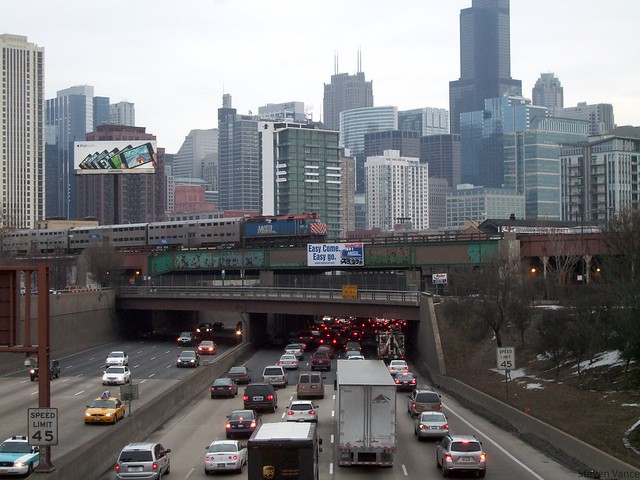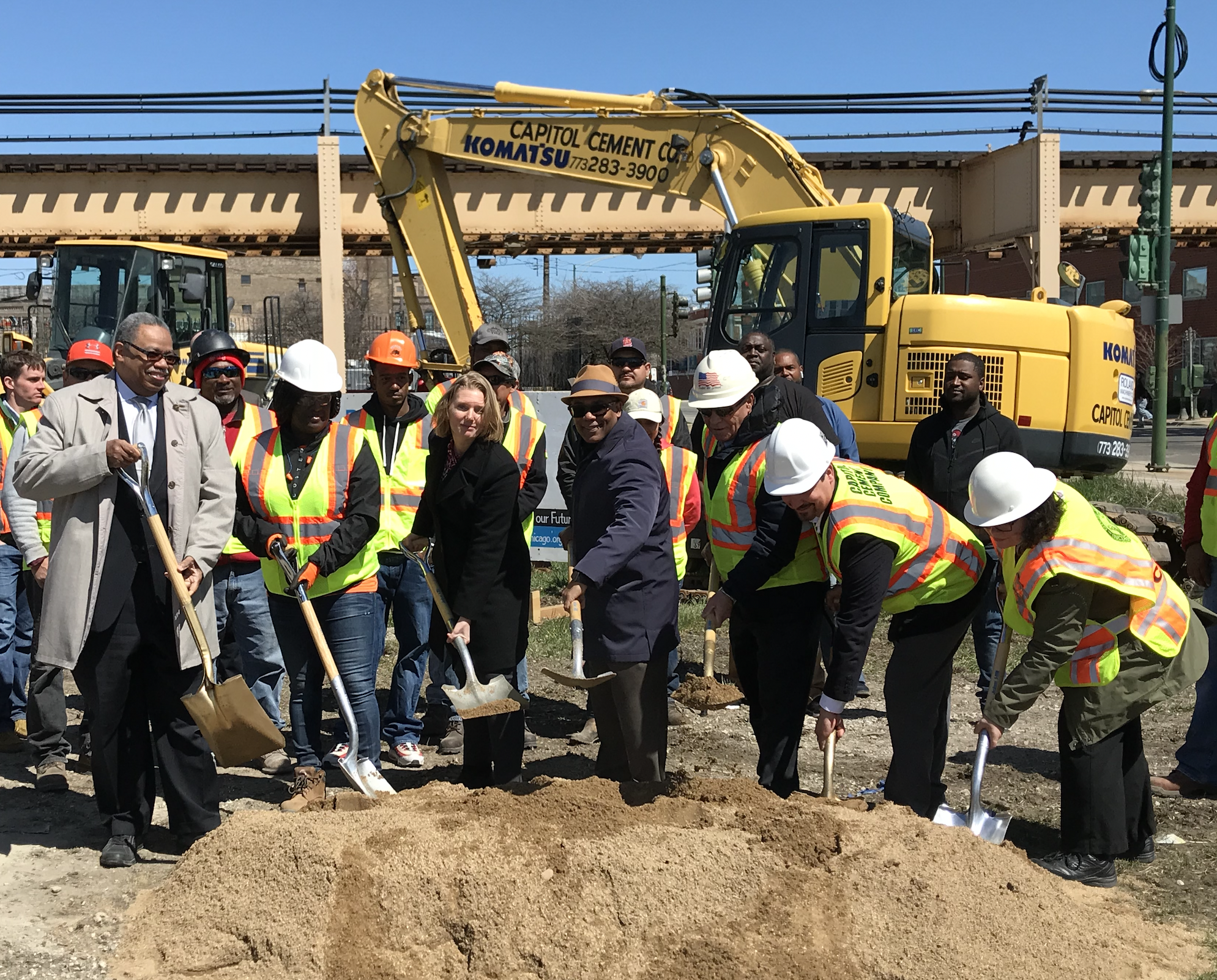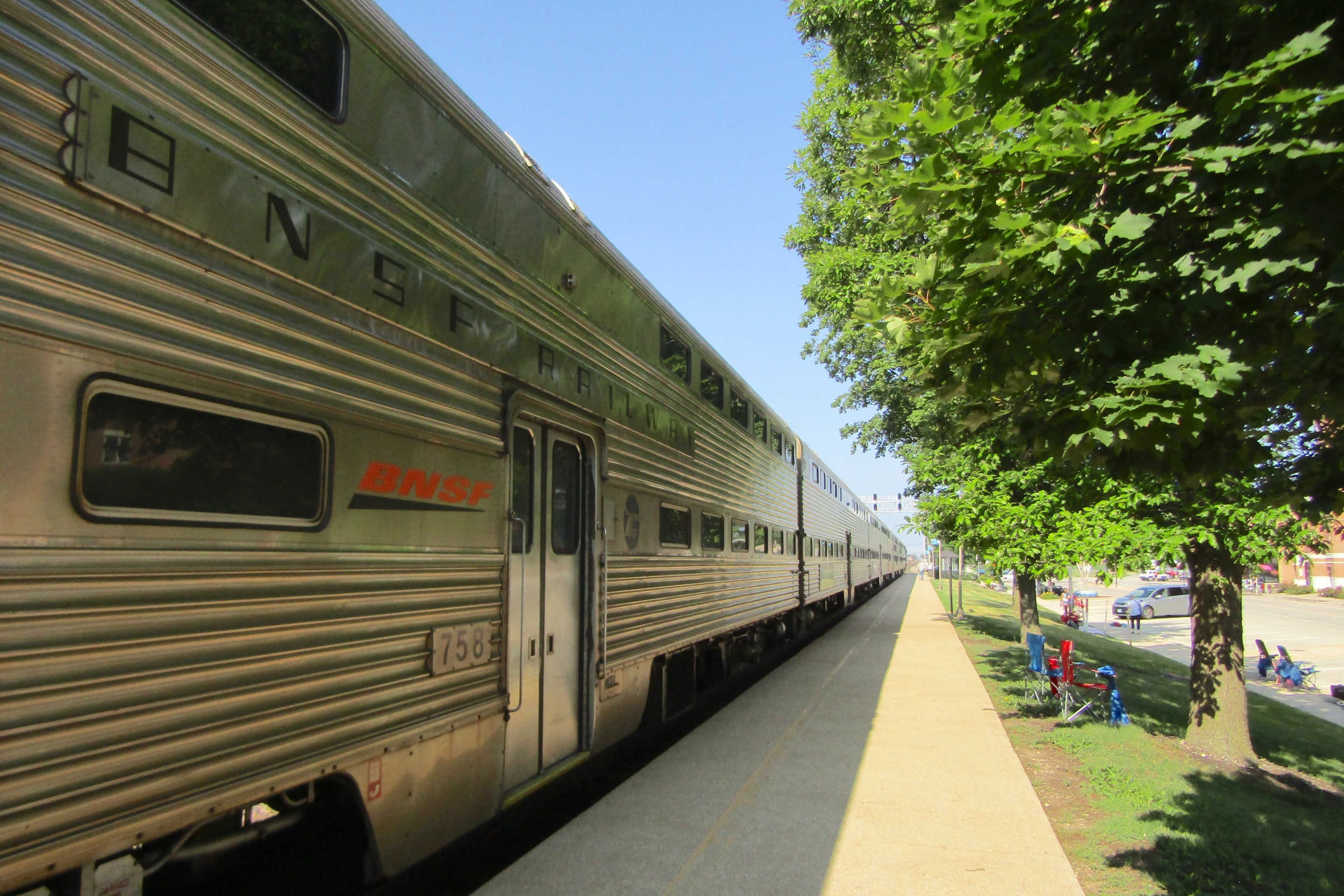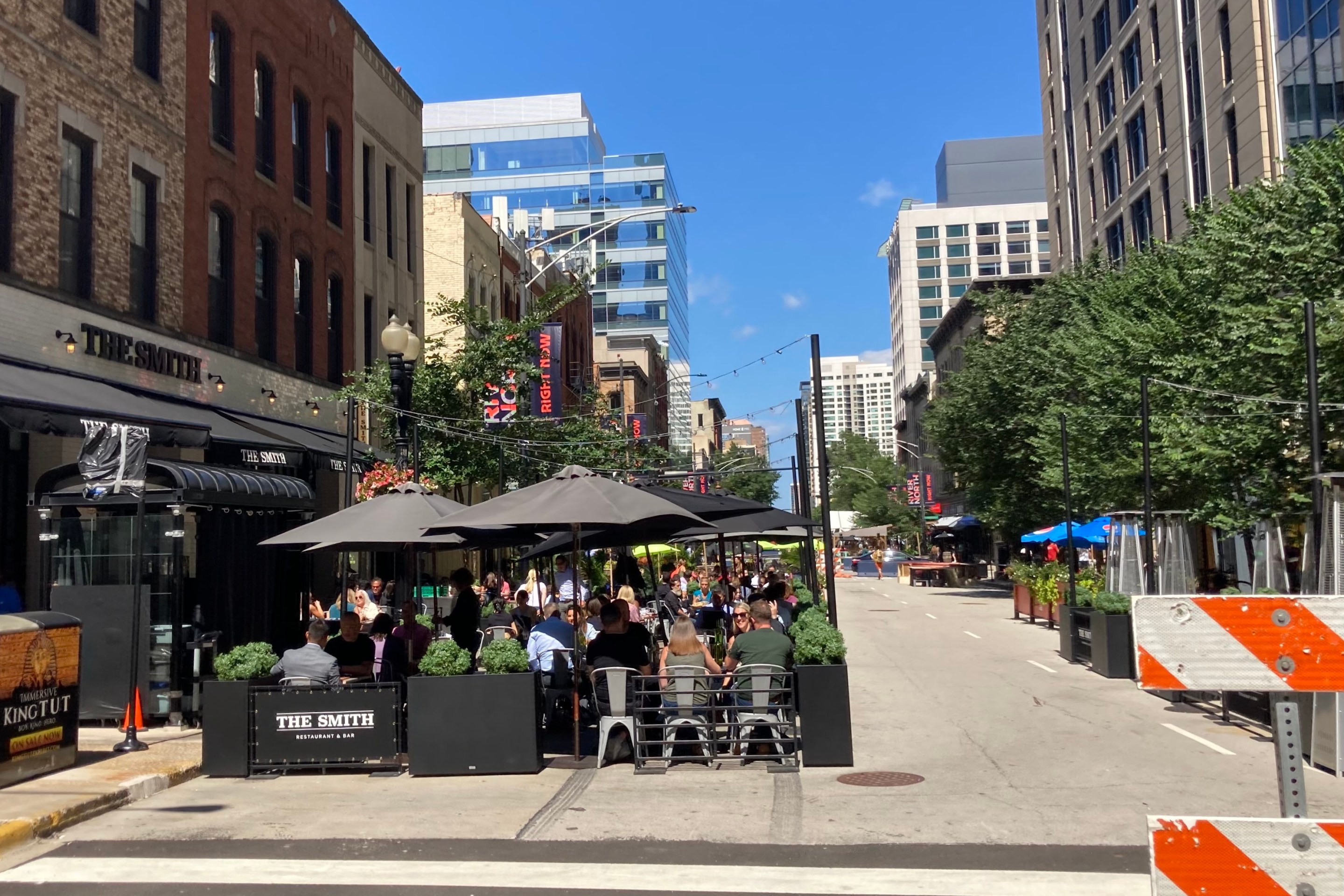The Lockbox Amendment Would Hinder the State Government
11:48 AM CDT on October 17, 2016

Note: Streetsblog Chicago's Steven Vance and John Greenfield have different opinions about the lockbox amendment. Read John's take here.
On every ballot in Illinois right now – early voting and mail-in voting has begun – there's a question asking if the Illinois constitution should be amended to ensure that money that comes from gas taxes, vehicle licensing fees, and similar transportation taxes and fees, goes only to pay for transportation infrastructure and projects. The purpose of the so-called "Safe Roads Amendment" is to prevent lawmakers from using the state's various transportation funds to pay for other state needs.
Adopting the amendment will create a new problem of inflexibility while failing to resolve the state's actual problems. There is insufficient funding in Illinois for all of the transportation projects communities and legislators want completed, and too often car-centric initiatives are prioritized while projects that would reduce car dependency are back-burnered. The amendment doesn't address that problem.
The Safe Roads Amendment is being pushed by the Transportation for Illinois Coalition, made up of highway construction industry and labor lobbying groups, as well as nonprofits like the Metropolitan Planning Council. The coalition has run ads suggesting that roads and bridges in Illinois are in danger of falling apart and causing injuries and fatalities because transportation funding has been diverted to non-transportation uses due to Springfield's waste and mismanagement. That's misleading.
The coalition is claiming that $6.8 billion was diverted from transportation projects, but that number is inaccurate. That money paid for various state needs, which often included, depending on how the diversions are tabulated, actual transportation-related payments. Also, the state's structurally-deficient bridges are being monitored and repaired as needed using money that the Illinois Department of Transportation budgets each year.
The Civic Federation, a watchdog organization, reviewed which monies have been transferred out of the various transportation funds since 2002. They wrote, "which spending counts as a transportation diversion has been a thorny issue for many years." For example, it's debatable whether it's counts as a transportation diversion when money from the funds goes to pay for pensions and health insurance for Illinois Department of Transportation employees.
Money from transportation funds – which are already supposed to be protected under existing laws – has been used to close state budget gaps. The amendment is supposed to prevent that in the future. This creates inflexibility in how the governor and state legislators should handle finances, which could have unintended consequences.
The Civic Federation wrote, "Limiting access to transportation-related revenues such as motor fuel taxes and motorist user fees could put additional strain on the State’s general operating resources” and “similarly affect local governments." Closing the gap without money from restricted funds could mean more cuts to social services, or hikes in the state income tax.
Much of what the coalition calls waste is money from the state's "Road Fund," funded by gas taxes, that they say wasn't used directly to build roads. But it was. The Civic Federation showed that a state audit identified "non-direct road construction spending included salaries for IDOT workers and debt payments on bonds used to finance road construction." The constitutional amendment explicitly allows road fund money to be used to pay debts on road construction bonds.
The amendment's wording is also a problem. Some transportation advocates have expressed concern that bicycle and pedestrian projects are not specifically mentioned in the amendment. Proponents have assured that those fall under the amendment's text for "other forms of transportation."
The Civic Federation also wrote, "Amendment advocates say group health payments from the Road Fund for employees with transportation-related jobs are no longer considered diversions and would be permitted under the proposed amendment."
The Chicago Metropolitan Agency for Planning reviewed the amendment and talked to the Coalition, and recently issued a memorandum stating that the language of the amendment is "unclear" on many issues. First of all, CMAP wrote that "Proponents of the amendment acknowledge that just a portion of the $f6 billion would have been prevented [from being diverted] by the proposed amendment." CMAP's memo said that about half a billion dollars was diverted between fiscal years 2004 and 2015 – hardly the battle cry the Coalition used in its TV commercials.
CMAP staff said they can't tell if funding themselves, a required unit of government that's in charge of developing a regional plan for Chicagoland, is allowable under the amendment. They noted that the amendment allows legislators to redefine "other transportation purposes" but they added that "[CMAP's] comprehensive planning activities could benefit from clarification or explicit eligibility in state law."
CMAP also pointed out how the proposed amendment "is largely highway-oriented," but again, the proponents have said that Illinois legislators can later clarify what constitutes the "betterment of" transportation infrastructure and if cities can spend transportation funds money on non-safety-related costs of projects.
The inflexibility the amendment creates could affect how counties and cities that have "home rule" status could spend money "from the transportation system that are not always directly reinvested in transportation improvements." Hundreds of municipalities, and Cook County, have gas taxes and vehicle license fees to raise local revenues. The amendment would restrict those revenues to transportation purposes but CMAP believes doing so might be an unconstitutional restriction of their "home rule" status.
The Active Transportation Alliance said adopting the amendment will create a bigger "pie" from which to build or maintain transportation infrastructure, and more money will go to bicycle and pedestrian projects than in the past. The pie will get a little bigger, but the amendment will not necessarily "spur" more funding for active transportation.
The Metropolitan Planning Council is also in favor of the amendment. The Chicago Tribune reported today that MPC believes the amendment "could help ease the way for an eventual tax increase to modernize the state's aging infrastructure, saying people can't be asked to pay more if there's no guarantee the money will go to upgrading roads and bridges."
How money from the transportation funds is spent is largely up to the Illinois Department of Transportation, with influence from legislators. Time after time IDOT has prioritized wasteful car-centric initiatives, such as projects to widen existing highways, despite the fact that the amount of driving has been decreasing in recent decades, and the Illiana Tollway, an expensive new highway that would destroy farmland and natural areas but would see little use, due to the high tolls needed to finance it.
In fact, the proposed constitutional amendment text would enshrine IDOT's ability to spend money on surveying, planning, and buying land for "reasonable anticipated future highway needs." Their study that said the Illiana was needed was invalidated because it invented the reasons for its need.
Capital Fax reported this morning that the West Central Mass Transit District – in Jacksonville, west of Springfield – shut down services yesterday because it was awaiting for its money from the state. It also said that other downstate transit agencies are going to shutdown because they, too, are awaiting their funds. A lockbox amendment wouldn't have precluded this because the state has already collected the money owed to these transit districts.
Amanda Kass, an assistant director at the University of Chicago's Center for Municipal Finance said, "The state has been limping along because court orders have largely kept most state functions chugging along." With a cash flow problem, and without a budget, it appears the state's comptroller is prioritizing other outgoing payments over these transit districts which may be against the law.
Active Trans is right that "we'll need to keep fighting" to fund bicycle, pedestrian, and transit infrastructure. That fight will go on even if this amendment isn't adopted, and we'll continue covering it on Streetsblog Chicago.
Constitutions are the documents our society uses to protect citizens' rights, and define how government should be run. It's not the role of a state constitution to prioritize spending categories. Lack of clarity is the proposed amendment's biggest problem. Using narrowly-worded language to restrict transportation funds and potentially tie the hands of progressive legislators and cities while negatively impacting the state budget overall is not the solution.
Updated 13:48 to add information about downstate transit districts shutting down. Updated 16:03 to clarify the comptroller's actions on the downstate transit districts.
Stay in touch
Sign up for our free newsletter
More from Streetsblog Chicago
Pressure is mounting to replace embattled CTA President Dorval Carter
Here's a look at what elected officials and other media outlets have said about the issue recently.
Service boost means BNSF Line will get Metra’s first-ever across-the-board weekend schedule, starting April 29
In addition, Halsted Street station will get weekend service, and Downers Grove's Fairview stop will become an off-peak stop.
Tasty news: Friedman Properties is trying to break the Clark outdoor dining stalemate by applying for street closure permits
Mayor Johnson's administration and Ald. Reilly haven't yet found common ground on bringing back the popular car-free zone. Will this make the difference?



